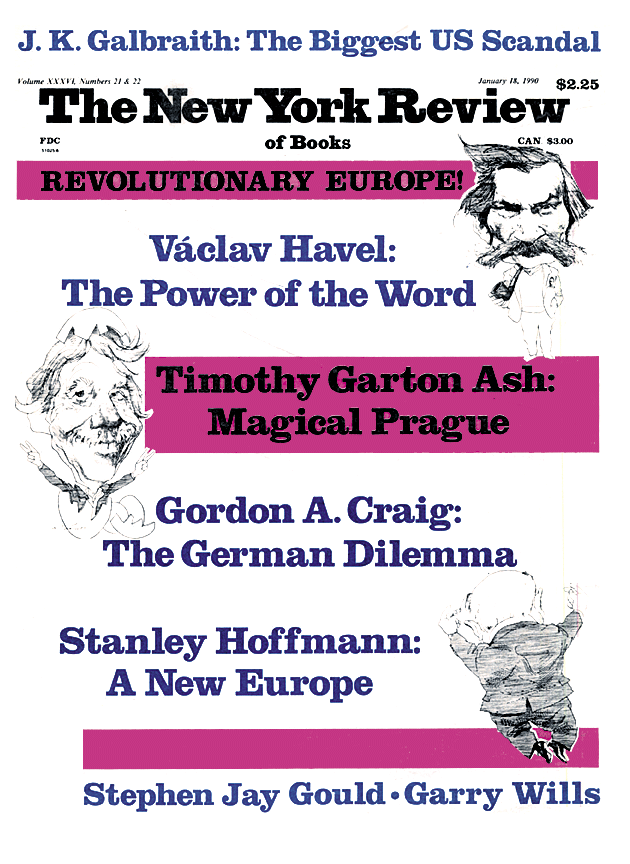In response to:
The Master at Home from the December 7, 1989 issue
To the Editors:
We were pleased to see that John Bayley had undertaken to review Sharon Cameron’s Thinking in Henry James (recently published by the University of Chicago Press), along with Miranda Seymour’s A Ring of Conspirators and Adeline Tintner’s The Pop World of Henry James [NYR, December 7, 1989]. In the third column of the review, however, something is greatly amiss: ideas and quotations from Cameron’s book go unattributed or are misattributed to Miranda Seymour, e.g., “If Maggie spoke of the adultery, she would acknowledge it existed,” is quoted from Thinking in Henry James, p. 8. Similarly, “her consciousness [is] not hers, but that of the entire book,” is not Seymour’s point, as Bayley states, but seems based on Cameron’s fourth chapter; “no way to think about thinking” is from p. 162; “who is living at the expense of whom” is Cameron’s phrase (p. 160), although it does not appear in quotation marks in the review; and the discussion of the Bronzino which Bayley attributes to Seymour and with which he takes issue is rather from Cameron, pp. 126–129.
In essence, Bayley’s entire discussion of consciousness in Henry James is a response to Cameron’s book, which isn’t clear from the context. We would appreciate your printing this clarification for your readers so that they can distinguish the two books. Seymour’s book is about James’s literary circle; Cameron’s is about consciousness in James’s novels.
Alan G. Thomas
Editor The University of Chicago Press
Chicago, Illinois
John Bayley replies:
I’m sorry for the mix-up over the Bronzino. Dr. Cameron’s interesting thoughts on Henry James’s thinking encouraged equal and free—perhaps too free—speculation on the part of this reviewer. My apologies for misattributing her idea and seeming to mis-appropriate her reflections.
This Issue
January 18, 1990


